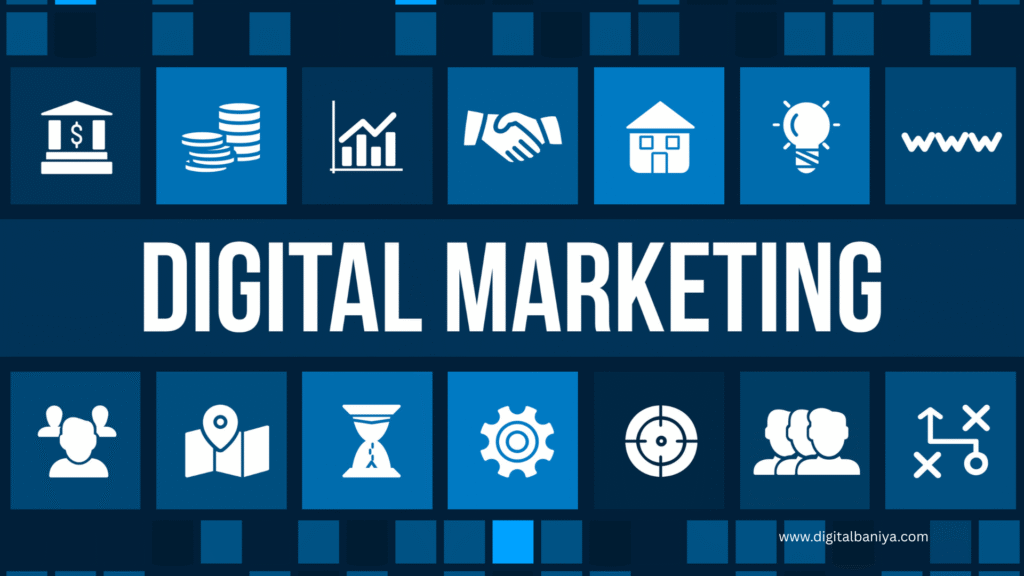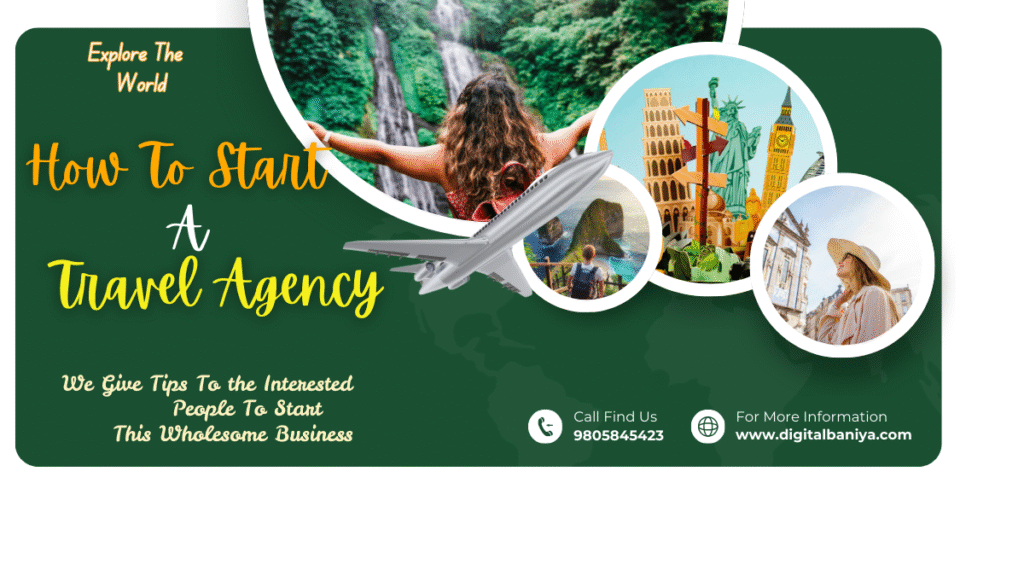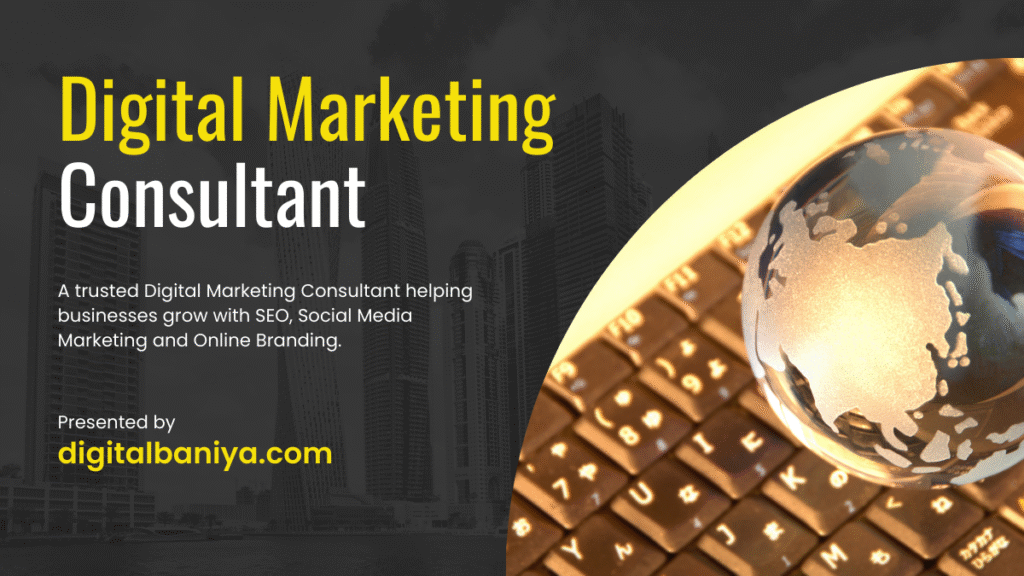Digital Marketing in 2025: Complete Guide, Strategies & Trends

Introduction to Digital Marketing In today’s world, almost every business wants to be visible online, connect with its audience, and drive sales efficiently. This is where Digital Marketing comes into play. Unlike traditional marketing, which depends on newspapers, billboards, or television, Digital Marketing (also known as Online Marketing, Internet Marketing, Web Marketing, or Electronic Marketing) uses digital channels like websites, search engines, social media, email, and mobile apps to promote products and services. With the rise of smartphones and high-speed internet, Online Marketing has become one of the most effective ways to reach targeted customers. Whether it’s a small local store or a global corporation, Digital Marketing strategies allow businesses to reach millions of potential customers in a cost-effective and measurable way. According to recent studies, businesses that invest in Internet Marketing and Social Media Marketing experience faster brand growth compared to those relying only on offline promotions. This is because Digital Marketing provides direct interaction with customers, real-time feedback, performance tracking, and much higher flexibility than traditional methods. In simple words, Digital Marketing = Right message + Right audience + Right time, through digital channels. What is Digital Marketing? Digital Marketing is the process of promoting products, services, or brands using digital platforms like search engines, websites, social media, email, and mobile apps. It is often interchangeably called Online Marketing, Internet Marketing, Web Marketing, or Electronic Marketing because all these terms describe the same concept: using the internet and digital tools for marketing. At its core, Digital Marketing is about connecting with your audience where they spend most of their time—online. Some experts also call it Interactive Marketing because it allows two-way communication between businesses and customers. For example, when a brand posts on Instagram, customers can like, comment, share, or even directly purchase through that post. This interaction builds stronger relationships and trust. Why is Digital Marketing Important? Key Characteristics of Digital Marketing Types of Digital Marketing Digital Marketing is not just one technique—it’s a combination of multiple strategies that work together to build a brand, attract customers, and generate revenue. Businesses can choose the right type of Online Marketing depending on their goals, audience, and budget. Below are the most important types of Digital Marketing that every business should know: 1. Content Marketing Content Marketing is one of the most powerful forms of Digital Marketing. It focuses on creating and distributing valuable, relevant, and consistent content to attract and engage a clearly defined audience. Instead of directly promoting a product, this strategy provides useful information that builds trust and authority. In today’s digital era, Content Marketing is often combined with Search Marketing and Social Media Marketing to maximize reach. 2. Search Marketing (SEO & SEM) Search Marketing is the backbone of Online Marketing. It ensures that your business appears in front of people actively searching for your products or services. It is divided into two main categories: For example, when someone searches “best mobile phones,” companies running Search Marketing campaigns can appear right on the first page, whether through organic SEO or paid SEM. 3. Social Media Marketing (SMM) Social Media Marketing has transformed how brands connect with their audiences. With billions of people using Facebook, Instagram, LinkedIn, Twitter (X), and TikTok, businesses can use these platforms to promote products, run ads, and interact directly with customers. Social media platforms also support Mobile Marketing, since most users access them through smartphones. 4. Mobile Marketing With the majority of internet traffic now coming from smartphones, Mobile Marketing has become a crucial part of Digital Marketing. It focuses on reaching customers via mobile devices using SMS, push notifications, in-app ads, and mobile-friendly websites. Mobile Marketing is closely connected to Interactive Marketing, since it allows businesses to engage with users through mobile apps, chatbots, and direct messaging. 5. Performance Marketing Performance Marketing is a results-driven approach to Digital Marketing. Businesses only pay for specific actions like clicks, leads, or sales. It’s highly measurable and is often linked with affiliate marketing, pay-per-click ads, and influencer marketing. This is especially important for businesses with limited budgets, since Performance Marketing allows them to maximize results without overspending. 6. Interactive Marketing Unlike traditional ads, Interactive Marketing focuses on creating two-way communication between businesses and customers. Instead of passively showing ads, it encourages users to engage with the brand. Interactive strategies are often combined with Social Media Marketing and Content Marketing to make campaigns more engaging. 7. Email & Web Marketing Email Marketing and Web Marketing are often considered the oldest but still most effective forms of Electronic Marketing. Businesses send newsletters, promotions, and personalized offers directly to customers’ inboxes or use websites as digital storefronts. Conclusion All these types of Digital Marketing—from Content Marketing to Performance Marketing, Social Media Marketing, Search Marketing, Mobile Marketing, and Interactive Marketing—work best when combined into a unified strategy. Each type has unique strengths, but together they help businesses build visibility, attract customers, and increase sales. Benefits of Digital Marketing In today’s fast-paced digital world, Digital Marketing has become the backbone of business growth. Unlike traditional advertising, Online Marketing gives businesses the power to reach a wider audience, track performance, and optimize campaigns in real time. Whether it’s a small startup or a global enterprise, the advantages of Internet Marketing are undeniable. 1. Cost-Effective Compared to Traditional Marketing One of the biggest benefits of Digital Marketing is cost efficiency. Running TV or print ads requires huge budgets, but Online Marketing platforms like Google Ads, Facebook Ads, and Email Campaigns allow businesses to start even with small investments. This makes Electronic Marketing highly accessible to businesses of all sizes. 2. Global Reach with Local Targeting Traditional marketing has geographical limits, but Web Marketing enables businesses to reach customers globally. At the same time, features like geo-targeting allow brands to focus only on specific cities, regions, or even neighborhoods. This combination of global exposure and local precision is what makes Digital Marketing unique. 3. Measurable Results and Analytics With traditional advertising, measuring ROI is difficult. But Digital Marketing provides accurate
Agriculture: Transforming Agribusiness Through Modern Techniques and Digital Marketing

Introduction & Importance of Agriculture Agriculture is the cornerstone of human civilization. It provides food, raw materials, employment, and drives economic development worldwide. Historically, farming was largely a subsistence activity, where families cultivated enough crops to feed themselves. Today, agriculture has evolved into a sophisticated agriculture business, integrating modern technology, scientific methods, and advanced management practices. The growth of agribusiness has allowed farmers, cooperatives, and entrepreneurs to scale operations beyond local markets. Modern consumers demand high-quality, organic, and specialty products, making digital marketing a crucial tool for promoting agricultural products, educating consumers, and expanding business reach. The Importance of Agriculture Globally, agriculture accounts for approximately 30% of employment in developing nations. In countries like India, more than 50% of the population relies on agriculture for their livelihood, emphasizing its importance for rural prosperity. The Evolution of Agriculture Over the past century, agriculture has undergone a significant transformation: Modern agriculture business is not only about crop production but also about understanding markets, managing resources efficiently, and adopting innovations. Farmers who combine technology, sustainability, and digital marketing are more likely to thrive in today’s competitive environment. Role of Agriculture in Global Economy Modern Challenges Addressed by Technology Modern agriculture faces challenges like climate change, soil degradation, water scarcity, and market volatility. However, innovations such as precision farming, smart irrigation, and farm management software help overcome these challenges. Additionally, digital marketing enables farmers to sell products online, build their brand, and increase profitability without relying solely on local markets. Types of Agriculture & Farming Methods Agriculture is a diverse field with multiple methods tailored to geography, climate, soil types, available resources, and market demands. Understanding these types of farming is essential for creating a successful agriculture business or agribusiness that is profitable, sustainable, and scalable. 1. Subsistence Farming Subsistence farming is one of the oldest forms of agriculture. In this method: While subsistence farming ensures food security, it limits the potential for scaling an agribusiness. Modern farmers are increasingly combining subsistence farming with small-scale commercial farming to increase income and sustainability. 2. Commercial Agriculture Commercial agriculture is focused on producing crops and livestock for sale rather than personal consumption. Key characteristics include: This type of farming forms the backbone of most agriculture businesses and agribusinesses. Commercial agriculture often uses precision agriculture and smart farming techniques to maximize yield and reduce operational costs. 3. Organic Farming Organic farming emphasizes growing crops without chemical fertilizers or synthetic pesticides. Key points: Organic farming is not only eco-friendly but also enhances the market value of an agriculture business, especially when combined with digital marketing to educate consumers and sell products online. 4. Horticulture & Floriculture Horticulture involves the cultivation of fruits, vegetables, nuts, and ornamental plants, while floriculture focuses on flower production. Key highlights: Horticulture and floriculture are excellent for agribusinesses that target niche markets and specialty products. Modern agri-tech solutions like climate-controlled greenhouses and automated irrigation systems are frequently integrated to optimize yield and quality. 5. Agroforestry Agroforestry combines agriculture and forestry to create a more sustainable farming system. Features include: Agroforestry supports sustainable agriculture practices, enhances farm productivity, and is increasingly promoted by governments and NGOs as part of climate-smart agriculture initiatives. 6. Hydroponics & Aquaponics Hydroponics and aquaponics are soilless farming techniques gaining popularity in urban areas and regions with poor soil quality. These methods are excellent examples of integrating agri-tech and smart farming to maximize productivity and reduce environmental impact. 7. Precision & Smart Farming Precision and smart farming involve using technology to monitor and manage crops with high efficiency. Key technologies include: These innovations allow farmers to reduce waste, save resources, and increase overall farm productivity. Precision agriculture is becoming a key driver for successful agribusinesses and agriculture businesses worldwide. 8. Livestock Management Livestock farming is a critical component of agribusiness, including dairy, poultry, and meat production. Features include: Modern livestock management increasingly incorporates agri-tech solutions such as IoT devices for tracking health, automated feeding systems, and AI-based productivity analysis. 9. Integrated Farming Systems Integrated farming systems combine multiple agricultural activities on the same farm: Such systems are particularly effective for sustainable agriculture businesses, as they diversify income sources and maximize land productivity. 10. Urban & Vertical Farming With urbanization, vertical farming and rooftop agriculture are gaining attention: Digital marketing plays a crucial role in promoting urban farming produce, building brand awareness, and connecting with eco-conscious consumers. Conclusion Understanding the various types of agriculture allows farmers and entrepreneurs to choose methods that suit their climate, resources, and market strategy. Combining these farming techniques with modern agri-tech solutions, sustainable practices, and digital marketing strategies ensures long-term growth and profitability for agribusinesses. Modern Techniques & Agri-Tech Modern agriculture is no longer limited to traditional planting and harvesting. Today, farmers and agribusinesses are leveraging technology, innovation, and digital tools to increase efficiency, productivity, and profitability. These modern techniques are transforming the agriculture sector globally, making it possible for even small-scale farmers to adopt scalable business models. Precision Agriculture Precision agriculture is a technology-driven approach to farming that optimizes resource use and improves crop yield. It involves the use of: By using precision agriculture, farmers can reduce waste, save resources, and improve overall farm productivity, which is essential for a profitable agriculture business. Smart Farming Smart farming integrates IoT (Internet of Things) devices, artificial intelligence (AI), and automation into daily farm operations. Key features include: Smart farming ensures sustainable agriculture practices, maximizes yields, and reduces labor dependency, making it a vital component of modern agribusiness. Hydroponics & Aquaponics Hydroponics and aquaponics are innovative soilless farming systems that allow year-round production, especially in urban areas or regions with poor soil quality. These techniques require knowledge of agri-tech tools, nutrient management, and climate control but offer high yields and high-value crops such as leafy greens, strawberries, herbs, and microgreens. Hydroponics and aquaponics also appeal to health-conscious urban consumers, which can be promoted effectively through digital marketing. Automation & Robotics in Agriculture Automation is revolutionizing large-scale farming operations by reducing manual labor and improving efficiency. Examples include: By
How to Start a Travel Agency: A Complete Step-by-Step Guide

Introduction Travel is no longer just a hobby—it has become a lifestyle. Millions of people are constantly searching for trips, holiday packages, and customized travel plans. This demand has opened up a huge opportunity for entrepreneurs who want to learn How to start a travel agency. Whether you are looking to start a travel business, open a travel company, or simply set up a travel agency from home, the opportunities are endless. In today’s world, many people dream to launch a tourism business or even start a tour company that offers unique services like adventure trips, luxury tours, or spiritual journeys. But before you dive into this growing industry, it is very important to understand exactly How to start a travel agency in a way that ensures long-term success. In this guide, you will learn everything step by step—from market research and legal requirements to branding, marketing, and growth strategies. How To Start a Travel Agency and Why Consider Starting a Travel Agency? Before diving into the steps of How to start a travel agency, let’s first understand why this business is so attractive. Starting a travel business is not just about booking tickets—it’s about creating experiences that people remember for a lifetime. Step 1: Research the Market Before You Start One of the most important steps in How to start a travel agency is to study the market. A successful entrepreneur doesn’t jump blindly; they always prepare with the right knowledge. When you start a travel business, you must know: For example, if you want to launch a tourism business that focuses on adventure travel, your target market will be young explorers. On the other hand, if you want to open a travel company that provides luxury tours, you will need to focus on high-income clients. By doing strong market research, you will have a clear roadmap for your business. Step 2: Choose Your Business Model There are many ways to set up a travel agency. The right model depends on your goals, budget, and expertise. Here are the main options: Every model has pros and cons, but the best choice is the one that matches your strengths and resources. Step 3: Legal Registration and Licenses If you are serious about How to start a travel agency in India, then you must focus on legal requirements. Without proper registration, your business won’t look professional. Many people ignore this step when they begin travel services, but in reality, it is the foundation for long-term success. Step 4: Build Your Brand Identity Branding is the soul of your travel agency. When people search online for How to start a travel agency, they often forget that branding is what makes a company stand out. Tips for building a strong brand: Remember, if you want to open a travel company that stands apart from competitors, your brand should communicate trust and professionalism. Step 5: Build a Website and Online Presence Today, travel businesses cannot survive without an online presence. Even if you start a tour company locally, your customers will first check your website and social media. Things you must include in your website: In fact, many entrepreneurs who launch a tourism business get their first clients through social media and search engines. Step 6: Build Partnerships When planning How to start a travel agency, building strong partnerships is essential. These partnerships help you set up a travel agency that offers complete travel solutions instead of just ticket booking. Step 7: Marketing and Promotions Even the best travel startup will fail without marketing. When you start a travel business, promotion is everything. Marketing ideas: A strong online presence helps you open a travel company that attracts clients without depending only on offline referrals. Step 8: Offer Unique Travel Packages To stand out, you must offer unique packages. Instead of copying others, design experiences. Examples: By creating specialized tours, you can start a tour company that becomes the first choice for a specific audience. Step 9: Provide Excellent Customer Service The success of any travel start up depends on customer satisfaction. Even if you know everything about How to start a travel agency, if your clients are unhappy, your business will fail. Tips for great service: Good service brings repeat clients and referrals. Step 10: Scale and Grow Your Business Once you successfully set up a travel agency, the next step is growth. Ways to scale: With consistent effort, you can launch a tourism business that grows into a global brand. Common Mistakes to Avoid Many entrepreneurs fail while learning How to start a travel agency because they make these mistakes: Avoid these mistakes, and your chances of success will be much higher. Conclusion Starting a travel agency is not just about booking tickets—it’s about building dreams and experiences. By now, you have a complete guide on How to start a travel agency along with practical steps, strategies, and tips. Whether you want to start a travel business, open a travel company, launch a tourism business, or start a tour company, this roadmap will help you succeed. The travel industry is full of opportunities, and those who are prepared always win. So, if you are ready to set up a travel agency and create a profitable travel start up, take the first step today. Your journey towards success begins now.
Digital Marketing Consultant in Kangra | Digital Baniya – SEO & Marketing Expert

Introduction In today’s fast-changing business world, every local brand in Himachal Pradesh is looking for new ways to grow online. Kangra, known for its culture, tourism, and rising startups, is now becoming a hub for digital opportunities. This is exactly where a professional Digital Marketing Consultant in Kangra makes a difference. At Digital Baniya, we proudly serve businesses as a leading Digital Marketing Expert . Whether you run a restaurant, a coaching institute, or an online store, our role as your trusted SEO Specialist in Kangra and Pathankot is to ensure your business is visible to the right customers. By hiring an experienced Digital Marketing Consultant in Kangra, you are not only investing in services but securing long-term digital growth. Digital Marketing Consultant in Kangra, Himachal Pradesh from Home Why Hire a Digital Marketing Consultant in Kangra? Most local businesses struggle with visibility, branding, and attracting customers. An expert provides solutions to overcome these challenges. Common Problems Without a Consultant Hiring a Digital Marketing Expert in Kangra ensures that your business avoids these mistakes and builds a strong foundation. Top Services by a Digital Marketing Expert in Kangra SEO Specialist in Kangra – Building Google Visibility Search Engine Optimization (SEO) is the backbone of online success. As an SEO Specialist, Digital Baniya helps your website rank for local and competitive keywords, bringing consistent organic traffic. Social Media Marketing Consultant in Kangra Social media is where your customers spend their time. A professional Social Media Marketing Consultant in Kangra designs engaging campaigns on Instagram, Facebook, and LinkedIn to build community and trust. PPC Advertising Consultant in Kangra Running ads without strategy wastes money. With a PPC Advertising Consultant in Kangra, your Google Ads and Meta Ads deliver measurable results. Digital Strategy Consultant in Kangra Every business is unique. As a Digital Strategy Consultant in Kangra, we analyze your goals and competitors, then create a roadmap that ensures growth. Digital Branding Expert in Kangra Your website and content reflect your brand. A Digital Branding Expert helps you stand out with professional design, fast websites, and consistent branding. Benefits of Working with a Digital Marketing Consultant in Kangra When you choose a Digital Marketing Consultant in Kangra, you are choosing sustainable growth. Case Studies Case Study 1: Restaurant in Kangra After working with Digital Baniya, a small restaurant achieved: Case Study 2: Coaching Institute in Kangra With our strategies, a coaching center: Step-by-Step Digital Growth Roadmap Future of Digital Marketing in Kangra The demand for a Digital Marketing Consultant in Kangra is rising. As more people shop online, rely on Google reviews, and follow social media trends, only those businesses that work with experts will stay ahead. Frequently Asked Questions (FAQs) Q1. Who is the best Digital Marketing Consultant in Kangra?A: Digital Baniya is trusted by local businesses for SEO, PPC, and branding solutions. Q2. How can a Digital Marketing Expert in Kangra grow my business?A: By designing custom strategies in SEO, social media, and paid advertising. Q3. Is hiring a Digital Marketing Consultant in Kangra expensive?A: No, it is cost-effective compared to long-term growth and ROI. Q4. What makes Digital Baniya different from other consultants?A: Local expertise, result-driven campaigns, and full-service digital solutions. Q5. Can an SEO Specialist in Kangra help my e-commerce business?A: Yes, SEO ensures your products reach buyers searching online. Conclusion Kangra’s business landscape is changing rapidly. To stay competitive, every brand needs expert guidance. A trusted Digital Marketing Consultant in Kangra helps you build visibility, attract the right customers, and achieve long-term growth. At Digital Baniya, we proudly serve as a dedicated Digital Marketing Expert in Kangra and Pathankot, delivering solutions in SEO, social media, PPC, and digital branding. If you want your business to grow smarter and faster, it’s time to partner with us.
